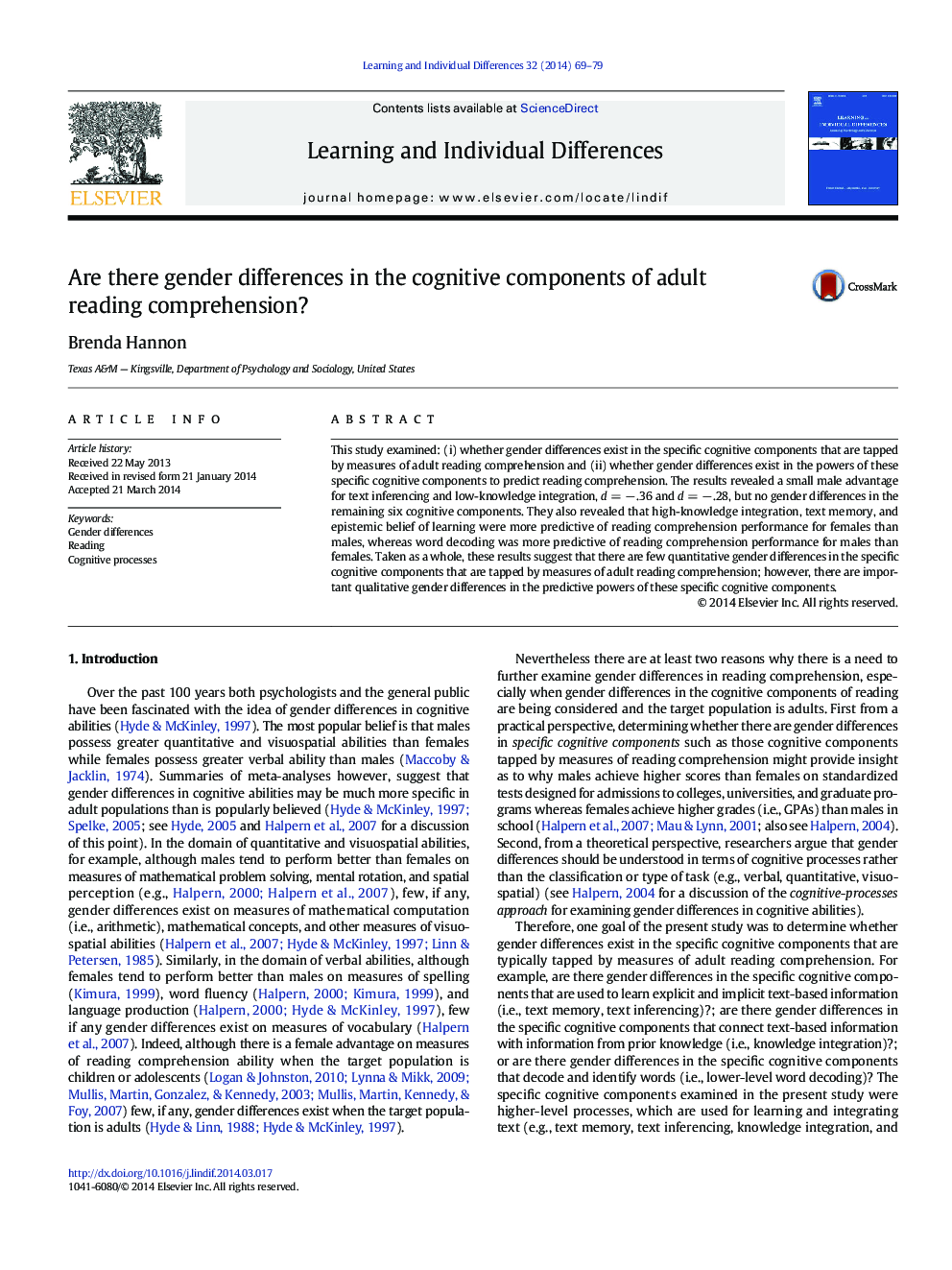| Article ID | Journal | Published Year | Pages | File Type |
|---|---|---|---|---|
| 6845103 | Learning and Individual Differences | 2014 | 11 Pages |
Abstract
This study examined: (i) whether gender differences exist in the specific cognitive components that are tapped by measures of adult reading comprehension and (ii) whether gender differences exist in the powers of these specific cognitive components to predict reading comprehension. The results revealed a small male advantage for text inferencing and low-knowledge integration, d = â .36 and d = â .28, but no gender differences in the remaining six cognitive components. They also revealed that high-knowledge integration, text memory, and epistemic belief of learning were more predictive of reading comprehension performance for females than males, whereas word decoding was more predictive of reading comprehension performance for males than females. Taken as a whole, these results suggest that there are few quantitative gender differences in the specific cognitive components that are tapped by measures of adult reading comprehension; however, there are important qualitative gender differences in the predictive powers of these specific cognitive components.
Related Topics
Social Sciences and Humanities
Psychology
Developmental and Educational Psychology
Authors
Brenda Hannon,
